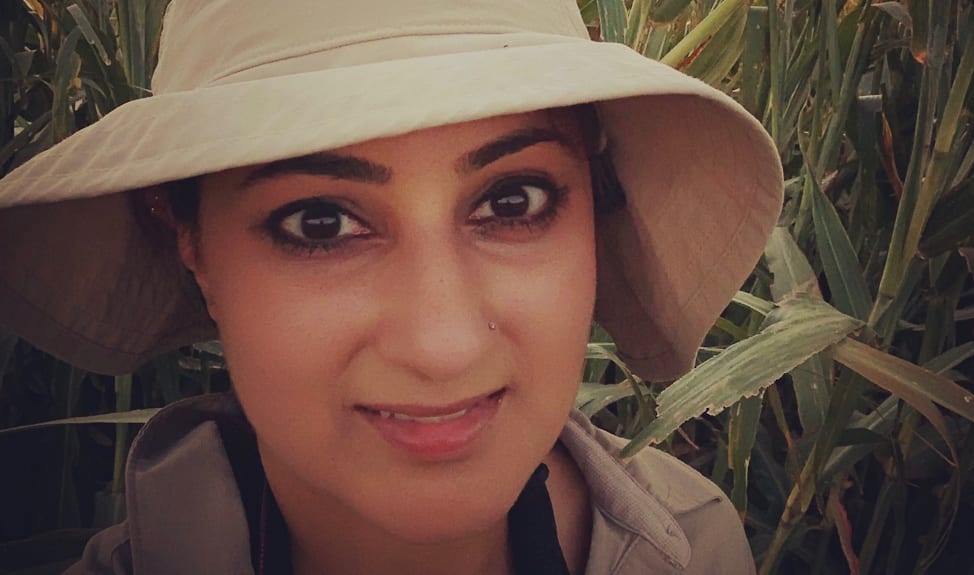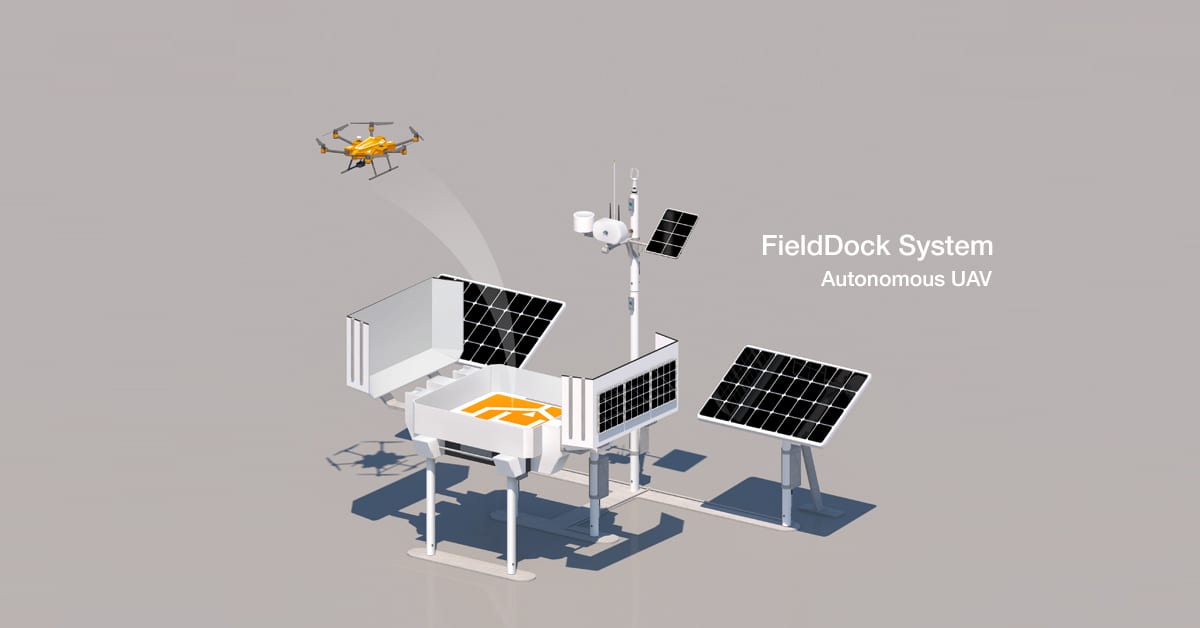Meet Nadia Shakoor, Senior Research Scientist
Nadia Shakoor believes in being “the change you want to see in the world.” She means this literally: when she comes across a problem that needs a solution, she doesn’t hesitate to create one herself. “It’s empowering and inspiring to know that as new challenges emerge that require novel technologies, I can discover how to build the solution myself rather than searching endlessly for something that may not exist,” says Nadia.
Developing Smart Farm Technology
The PheNode, an energy efficient, ‘smart’, field-deployable, environmental sensing and crop monitoring station developed by Nadia and teammates in the Mockler lab, is a prime example. “We needed a solution that didn’t exist as we wanted it, and then the PheNode was born. FieldDock follows in these footsteps by integrating everything that I would want to have in an autonomous field phenotyping platform in order to accommodate the kind of crop research I aim to do,” explains Nadia.

Nadia Shakoor, PhD, Senior Research Scientist at the Danforth Center
She hopes that by unifying separate technologies in remote sensing, sensor networks, and computational breeding, FieldDock will autonomously and more intelligently accelerate breeding with less human intervention. Her vision is for FieldDock to help close a critical gap in quantitative field phenomics by providing high-resolution temporal data throughout the growing season for crop breeders and researchers.
Nadia believes that teamwork is an essential ingredient when creating innovative solutions to complex problems. “Successful execution of an innovative idea sometimes needs a team with a variety of skills and perspectives that can become greater than the sum of its parts,” she explained. “Given the complexity of the systems we are designing, a multidisciplinary approach is ideal. We have a team of experts from fields including remote sensing, engineering, computer science and plant science all working together to take FieldDock from concept to reality.”

Inspiring Future Scientists
Nadia’s work now appears in the Discovery Park of America in Union City, TN, a 50-acre heritage park and 100,000-square-foot museum with exhibit galleries focused on topics like space, technology, the military, history, art, and transportation. In a new exhibit called “AgriCulture: Innovating for Our Survival,” visitors will learn about how agricultural technologies like the PheNode/FieldDock and improvements in crop genetics can impact society and culture. “It’s an honor to be included in a project that helps to educate the public about the role technology and innovation in agriculture plays to help bring food from the farm to the family table. I hope to inspire future generations of crop scientists, to boldly innovate and follow their aspirations to wherever it may lead them.”